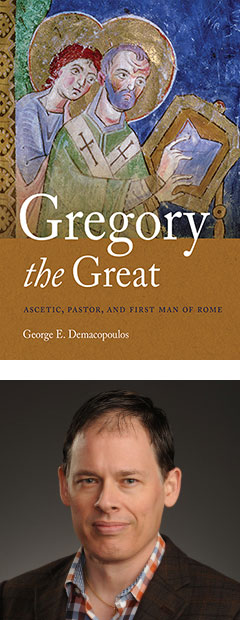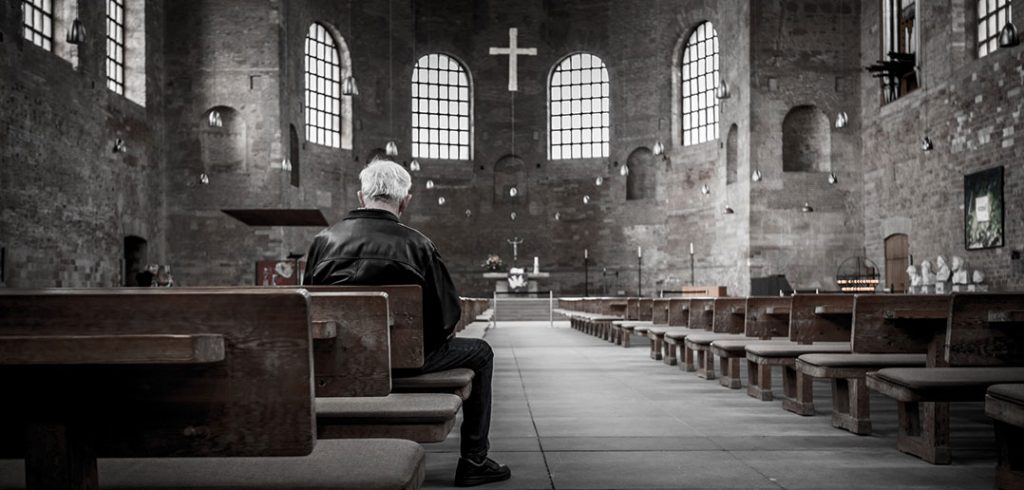Most Christian scholars agree that the pope known as Gregory the Great earned his appellation. A saint, a Doctor of the Church, and the first monk to assume the papacy, Pope Gregory I was both a gifted theologian and an effective ruler in Rome during the late sixth century.
However, those two sides of Gregory—the “monkish theologian” and the “calculating administrator”—have caused centuries of confusion for scholars, who have not been able to reconcile these seemingly dichotomous sides—until now.
 George E. Demacopoulos, PhD, a professor of theology and the Fr. John Meyendorff & Patterson Family Chair of Orthodox Studies, recently published Gregory the Great: Ascetic, Pastor, and First Man of Rome (University of Notre Dame Press, 2015). Whereas previous works about Gregory have dealt with either his theology and mysticism, or his political activities as a bishop of Rome, Demacopoulos’ book is the first to bridge these two camps.
George E. Demacopoulos, PhD, a professor of theology and the Fr. John Meyendorff & Patterson Family Chair of Orthodox Studies, recently published Gregory the Great: Ascetic, Pastor, and First Man of Rome (University of Notre Dame Press, 2015). Whereas previous works about Gregory have dealt with either his theology and mysticism, or his political activities as a bishop of Rome, Demacopoulos’ book is the first to bridge these two camps.
This is not merely the ideal approach to understanding Gregory, Demacopoulos argues: it is imperative.
“If you truly understand his theology, then you can understand the decisions that he made as Bishop of Rome,” said Demacopoulos, who is the co-founding director of Fordham’s Orthodox Christian Studies Center.
Gregory’s leadership as pope was inextricably connected to his training as a monk, Demacopoulos said. The monasticism of Gregory’s time considered the pinnacle of Christian life to be a mystical encounter with the divine by way of prayer and isolation. Gregory, however, flipped that notion. According to Gregory, the fullness of Christian life is achieved not in isolation, but via self-sacrifice and service to others.
In other words, the prayer and meditation that one does within the walls of the abbey are not the end, but rather the means to going out and ministering to the world.
“It’s that theological commitment that makes sense of the way Gregory the Great set up the papacy and worked to reform certain structures of the Church,” Demacopoulos said, noting that this theology of service is not unlike the one put forth by Pope Francis.
In addition to this unique relationship between his theology and his papacy, Gregory the Great is an important figure in the early medieval church because of his prolific writings, Demacopoulos said. Gregory’s letters comprise the largest surviving corpus in the ancient world—Christian and non-Christian writings alike. As a result, studying Gregory offers a rare insight into sixth-century thought.
Read a full review of Gregory the Great: Ascetic, Pastor, and First Man of Rome on the University of Notre Dame Press’s website.

